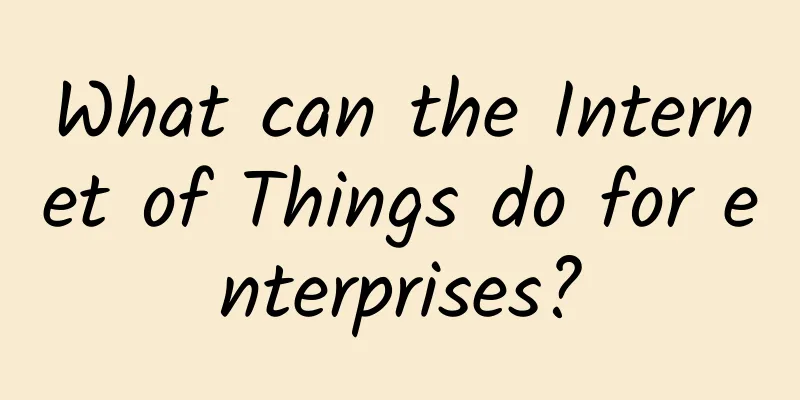Huawei's temporary license has expired

|
Huawei cannot purchase parts and components from the United States, but U.S. defense suppliers can continue to buy products from Chinese companies on the "Entity List" such as Huawei to protect U.S. national security interests. After more than a year of 90-day extension cycles, the temporary license provided by the US Department of Commerce to Huawei expired on August 13. For companies like Google, it is "illegal" to continue providing services to Huawei and its users after this. If you have an international version of the P30 Pro, although it has a full set of Google service frameworks installed, it will not be able to upgrade to Android 11, and there will be no other security and performance upgrades.
Before the ban on Huawei's high-end chips came into effect on September 14, US companies' trade licenses with Huawei were stopped. With the temporary extension period ending last Thursday, the business of many US telecom network companies and Huawei's mobile phones may become extremely troublesome. Five postponements, now it’s over?Although Huawei has been "banned" from doing business with US partners for more than a year, the US Commerce Department's temporary license allowing exports to Huawei has been extended since May last year. The most recent extension of this temporary general license dates back to May this year. On the evening of May 15th, Beijing time, the Bureau of Industry and Security (BIS) of the U.S. Department of Commerce announced that it would extend the temporary general license for Huawei and its affiliates on the Entity List for 90 days, which will expire on the evening of August 13th. This deadline has passed and there is no sign of an extension so far. The temporary general license allows U.S. software vendors to continue providing updates and patches to Huawei so that Huawei mobile phone and wireless network equipment customers can continue to use these updates and patches. The Commerce Department said the temporary licenses were largely intended to help rural telecom companies that use Huawei equipment in their mobile networks. Larger companies have been avoiding Huawei equipment, but rural providers use it because of its lower cost. In an emailed statement, the U.S. Department of Commerce confirmed that the temporary license had expired. "The temporary license has given Huawei equipment users and telecommunications providers an opportunity to continue to temporarily operate Huawei equipment and existing networks while accelerating the transition to other suppliers," the statement said. A Huawei spokesman said the company was "reviewing developments and assessing the possible impact." Jerry Whisenhunt, general manager of Pine Telephone Company, a telecommunications network company in rural Oklahoma, said he was not too worried about the expiration of the temporary license. Instead, he was more worried about a regulation enacted this year requiring U.S. wire companies to replace network equipment that poses a risk to national security. On July 1 this year, the Federal Communications Commission officially listed Huawei and ZTE as companies that pose such a threat.
The new rules prevent the cable companies from replacing their network equipment until the federal government gives them money. Congress has not yet allocated funds for the replacement, and there is no sign that it will happen soon. Jerry Whisenhunt said he did not want to waste money on replacing network equipment, even though he knew it was necessary. He also said: "The longer the government delays, the more likely it is that our network equipment will have problems." In addition, the expiration of the temporary license also means that Google can no longer provide software updates for Huawei phones running Google's Android operating system.
Image source: techadvisor Earlier this year, Google said the trade ban prevented it from providing technology or apps to new Huawei phones, but Huawei phones launched before the trade ban was enacted in May 2019 were still able to update related Google services. After the temporary license expired, such updates were no longer legal. However, the issue of Google framework stopping updates has little impact on domestic and new phone users. A Google spokesperson told The Washington Post that temporary licenses are the key to providing Android updates through official channels, and phones without Google services (such as the Huawei P40 Pro) can still get software updates because their software is provided by Huawei through the open source Android version. In a statement in February, Google said: "We will continue to work with Huawei to provide security and other updates to Google apps and services on existing Huawei devices, in compliance with government regulations, and we will continue to do so as long as the law allows." Last Friday, Google spokesman Jose Castaneda said the company had previously provided updates to Huawei devices in accordance with the provisions of the temporary general license. But he declined to comment further. US Department of Defense: Purchases from Huawei and ZTE cannot be stoppedHuawei has been cut off from the supply of American parts. On the other hand, American defense-related contractors have successfully persuaded the government to allow Huawei to supply them. On August 15, according to a memorandum obtained by the U.S. Defense News website, the Trump administration has granted the U.S. Department of Defense a temporary exemption from the government-wide ban on the use of telecommunications equipment from Chinese manufacturers such as Huawei. The move provides several weeks of grace until September 30 for many U.S. companies that supply the Pentagon. The temporary extension of licenses is the result of their lobbying for time to comply with the ban as the companies are experiencing economic difficulties during the spread of the new coronavirus. The original starting date for the ban on relevant departments purchasing Huawei products was also August 13. According to Section 889 of the 2019 National Defense Authorization Act, the US government prohibits the government from signing contracts with companies whose supply chains contain products from five Chinese companies, including Huawei. According to a previous report by Reuters, the five companies are Huawei, Hikvision, Dahua, Hytera and ZTE. U.S. government contractors within the scope of this ban need to prove that their companies will not use the products of these Chinese companies unless they obtain government exemptions. U.S. Director of National Intelligence John Ratcliffe granted the Pentagon the temporary waiver, citing U.S. national security interests, in a memo to Deputy Defense Secretary Ellen Lord. The move also buys time to further evaluate the Defense Department's broader waiver request.
John Ratcliffe, Director of National Intelligence "The Department of Defense must provide the necessary military support to prevent war, and it is important to keep enemies out of our borders," Ratcliffe said. "Therefore, the procurement of goods and services necessary for the Department of Defense's responsibilities is also in the national security interest of the United States." In considering "broader exemptions", Ratcliffe asked Lord to seek more information about potential risks, mitigation measures and more possibilities for replacing the banned Chinese companies' products. Previously, the procurement ban left US defense contractors at a loss. These companies were unable to sign new contracts, sign orders, or even continue to perform existing contracts - because they did not know how to prove that they did not use products from Huawei, ZTE and other companies. Ratcliffe's memo is a victory for U.S. defense contractors, but the result is only a temporary reprieve. Previously, U.S. companies had hoped to legislate to lift the ban in the new crown epidemic relief plan, but the two parties gave up because of too much controversy. In May, Lord told lawmakers that contractors needed more time to comply with a government-wide ban or it could throw the defense industrial base into disarray. "If non-sensitive parts of the supply chain can't fulfill important contracts because there's a camera in a parking lot, that's going to grind a lot of things to a halt," Lord said at a House Armed Services Committee hearing. |
>>: Countless shots, just to create a perfect memory
Recommend
Fanstong operation experience—original and practical information! (Analyze usage scenarios, increase user density, and be creative)
During the operation process, great emphasis is p...
The confusion of Qudian: Is it inclusive finance, or usury that walks on the edge of morality?
On October 20, Qudian Group (QD.NYSE), which had ...
What happens from URL input to page display?
Preface What exactly happens when you open a brow...
Yuncheng Mini Program Development Company, how much does it cost to make a book mini program?
Yuncheng Mini Program Development Company, how mu...
No more breaking up! Russia agrees to extend the operation of the International Space Station
Recently, the Russian State Space Corporation ann...
LeTV Super Phone 2 review: a small TV with mobile phone functions!
The performance of LeTV Super Phone 2 will give p...
Construction safety engineering PPT dynamic slide template decoration design plan summary work report Baidu cloud download
Construction safety engineering PPT dynamic slide...
Will a nuclear power plant leak? Will it suddenly explode like a nuclear weapon? Don't believe these "nuclear" rumors anymore!
When it comes to the word "nuclear", ma...
The wind is blowing, but it is the two-wheeled electric vehicles that are blowing
To learn to fly, you must first learn to walk. Wh...
A full-link analysis of Pinduoduo's New Year's Eve fission event
This article focuses on the disassembly of activi...
Mini Programs are on the rise: Will they be the next wave to kill the App Store?
Last week, with the arrival of New Year's Day...
Deconstruction and reconstruction behind product operations: Why was P&G's brand empire "dismembered"? Why can Toutiao become a platform?
1. Unbundle I mentioned a point in the article &q...
How did Yunnan become the coffee capital of China? It all started with a "lost book"...
When it comes to coffee production areas, you may...
What are the functions of Foshan WeChat Convenience Store Mini Program? How to create a convenience store mini program?
As people's pace of life continues to accelera...





![[Li Jiaoshou] How to conduct consumer research without a large budget?](/upload/images/67cc39c0bf80e.webp)



